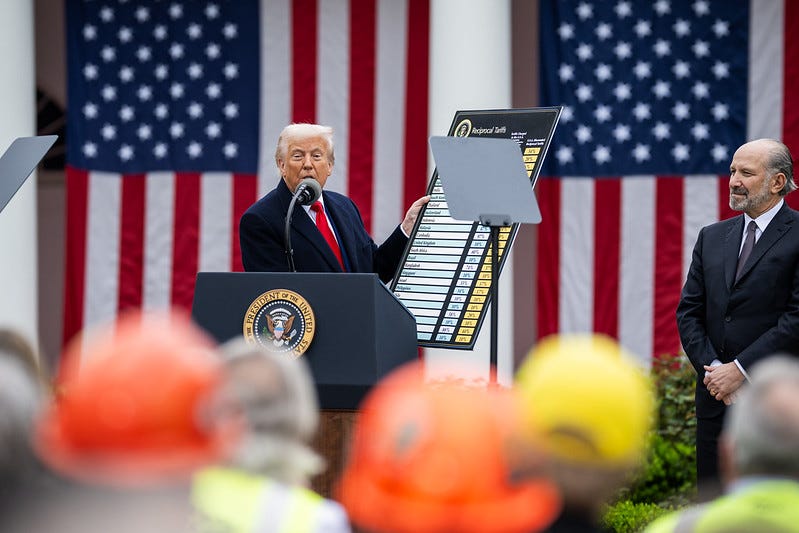Court Cancels Trump's Bigly Beautiful Trade War
Now we'll never get to hear about those 200 fantastic trade deals.
Last night a federal court ruled that most of President Trump’s tariffs are illegal. A three-judge panel on the Court of International Trade unanimously agreed that Congress cannot delegate its tariff authority to the president to invoke any time he likes by pulling the fire alarm and shouting “EMERGENCY!” Particularly when that “emergency” is just that he’d like other countries to buy more stuff from us.
It’s a stunning setback for the president, who has whipsawed financial markets almost daily, declaring and then un-declaring astronomical tariffs as he promises hundreds of trade deals that are always just around the corner. It’s also a very small “c” conservative opinion that will require substantial gymnastics for the Supreme Court to overturn.
Plus it’s going to really piss off Peter Navarro, Trump’s quack trade advisor who thinks the Smoot-Hawley Tariff Act was the high water mark of US economic policy.
What is the Court of International Trade?
The Court of International Trade (CIT) is a nine-judge tribunal with all the powers of a regular federal court, but its jurisdiction is limited to challenges to tariffs and trade deals. In fact, it has exclusive jurisdiction over such disputes throughout the country, and other challenges to Trump’s capricious tariffs were transferred from district courts to the CIT at the government’s behest.
But if the administration thought it would get a receptive hearing there, it was sadly mistaken. The panel, made up of one appointee each from Reagan, Obama, and Trump, dropkicked Trump’s claim that he can steal Congress’s tariff power just by claiming “emergency” authorization.
It’s an EMERGENCY!
On January 20, Trump announced a national emergency. Rambling menacingly about “drug cartels” he declared that “transnational organizations, such as Tren de Aragua (TdA) and La Mara Salvatrucha (MS-13)” are engaged in “campaigns of violence and terror in the United States and internationally are extraordinarily violent, vicious, and similarly threaten the stability of the international order in the Western Hemisphere.”
That “emergency” was the justification for his later invocation of the Alien Enemies Act. But it also served as the basis for tariffs on China, Mexico, and Canada, announced in a pair of executive orders on February 1.
Then on April 2, Trump signed yet another executive order, this one defining trade deficits with foreign countries as an “unusual and extraordinary threat to the national security and economy of the United States.” In a Rose Garden ceremony, he laid out a seemingly arbitrary regime of “reciprocal tariffs,” including a 10 percent tariff on a pair of islands near Antarctica that are inhabited solely by penguins.





